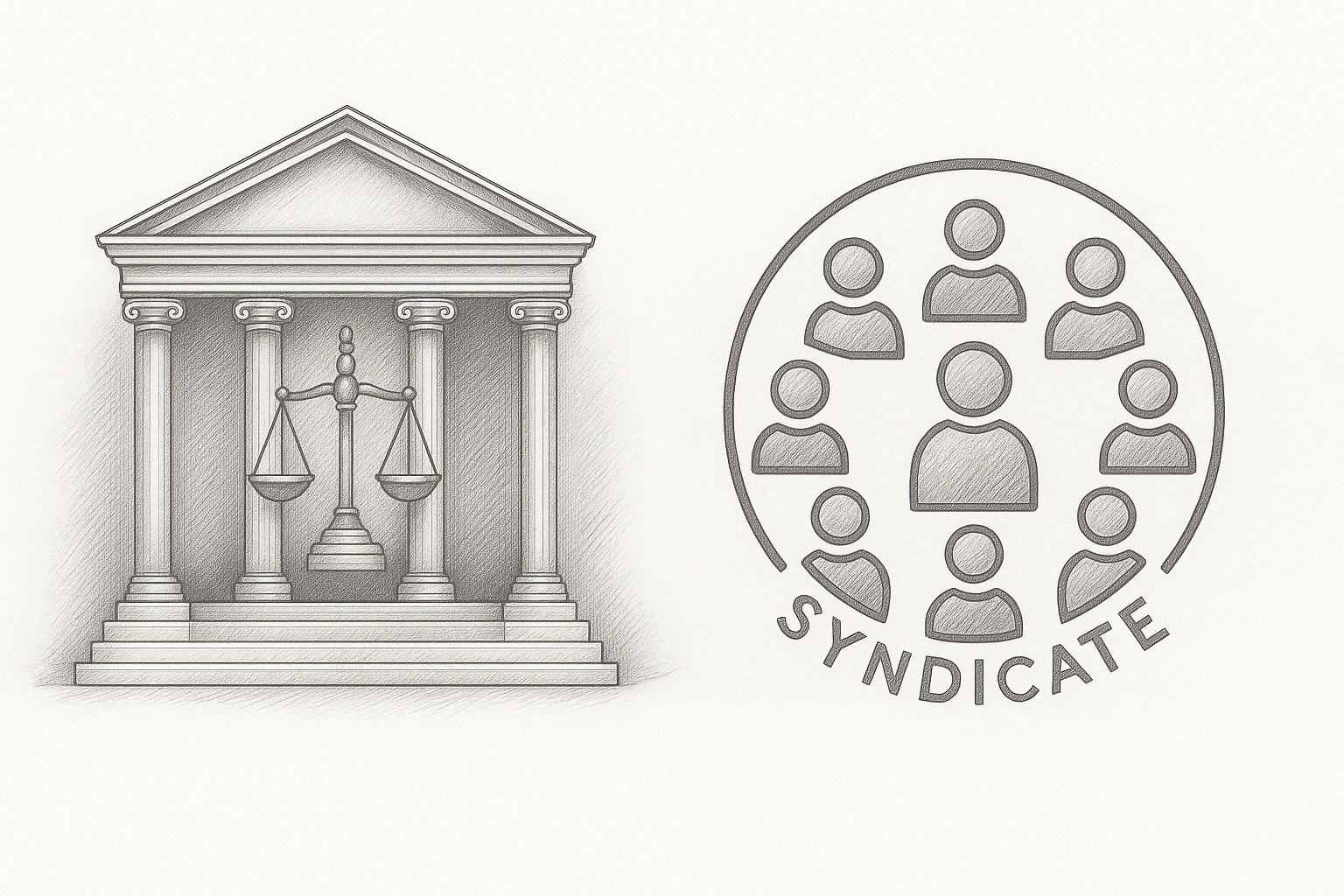Co-investment syndicates allow business angels to invest jointly while keeping the share register lean. A Federal Administrative Court ruling clarifies: no blanket asset manager licence is required, but authorisation as a securities firm may apply. Key insights for providers and companies.
Introduction
Co-investment syndicates are gaining in popularity – and for good reason. For start-ups and growth companies, the advantage lies in keeping their share register and cap table lean: instead of twenty entries for individual business angels, the share register contains only one entry for the syndicate. At the same time, the syndicate appears to the company as a single voice.
The lead investor can collect the voting instructions of all co-investors within the framework of a partner assembly and exercise the entire voting power of the syndicate uniformly at the general meeting. This applies not only to shareholder meetings but also to far-reaching decisions such as exercising subscription rights in capital increases or positioning during a company sale. For the company, this means it does not have to negotiate with a multitude of investors but rather deals with one clear counterpart representing a consolidated opinion.
Against this practical background, the question arose as to how co-investment syndicates are to be classified legally – in particular, whether commercial providers of co-investments and their pooling into syndicates are subject to FINMA licensing requirements.
1. The business model of co-investment syndicates
Co-investment syndicates are associations of professional investors, usually in the form of simple partnerships. Business angels typically invest in start-ups through such structures.
In the case at hand, the complainant planned to establish a co-investment platform where professional investors could form syndicates of up to twenty people, organised as simple partnerships.
The platform would handle deal sourcing and present investment opportunities in Swiss start-ups, especially in the tech and biotech sectors. Investments would typically be made directly in financing rounds, via equity or convertible loans.
As a service provider, the platform operator coordinated the syndicates’ processes, took over administration and management, and acted in its own name but on account of the syndicate when dealing with target companies. Internally, however, transparency was maintained: each investor acquired co-ownership of the shares or claims in which they participated.
In short: a platform that bundles investors into small syndicates on a commercial basis, curates investment opportunities, and handles execution for all – while ensuring clear internal allocation of investments.
2. FINMA’s position on licensing
FINMA took the view that this model could indeed trigger a licensing obligation:
- A classification under the Collective Investment Schemes Act (CISA) could not be excluded.
- A licensing requirement as an asset manager under Art. 17 FINIA might apply if the platform acted on a commercial basis for investors.
This raised the key question for practice: must such platforms necessarily obtain an asset manager licence?
3. Assessment by the Federal Administrative Court
To clarify these differing legal interpretations, the provider of the co-investment syndicates lodged an appeal with the Federal Administrative Court, which reached the following conclusions:
- Art. 17 FINIA (asset managers) applies exclusively to the representative model, i.e. acting in the name and on behalf of clients.
- The trust model chosen here – acting in one’s own name but on behalf of investors – does not fall under this provision.
- Instead, such structures may under certain circumstances require authorisation as securities firms under Art. 41 FINIA, as this category is precisely designed for the trust model.
Accordingly, the Court overturned the qualification of the provider as an asset manager but confirmed that a licensing requirement may still apply – albeit on a different legal basis.
4. Practical consequences for the industry
For providers of co-investment syndicates, the decision has two implications:
- Legal certainty: there is no general licensing obligation as an asset manager.
- Regulatory hurdles: the business model may nonetheless be subject to stricter requirements, particularly those applicable to securities firms with higher capital and organisational standards.
This makes it clear that providers of co-investment syndicates must carefully consider their legal structure and factor in the regulatory implications from the outset.
Conclusion
The decision brings welcome clarity to the distinction between asset managers and securities firms. For practice, it means that co-investment syndicates are not automatically to be classified as asset managers, but licensing requirements remain a central issue. Providers should therefore analyse their business models at an early stage with regard to FINMA supervision.
For companies making use of co-investment syndicates, Konsento offers a digital solution: the digital share register displays syndicates clearly, both in the cap table and in the share register. With Konsento’s general meeting tool, partner assemblies can prepare co-investors’ resolutions for the target company’s AGM, and thanks to integrated proxy and instruction rights, the lead investor represents the syndicate at the general meeting of the target company. This way, the practical advantages of syndicates are also digitally mapped – efficient, legally compliant, and future-proof.

